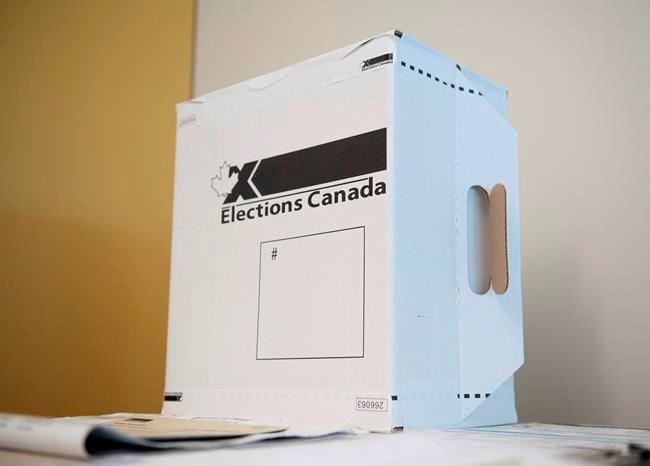Several young Canadians are taking the federal government to court in an effort to strike down the minimum voting age.
They argue that denying citizens under the age of 18 the right to vote in federal elections is unconstitutional.
They contend the minimum voting age violates two sections of the Canadian Charter of Rights and Freedoms
They say one section of the charter guarantees the right to vote for all Canadian citizens without an age qualification.
The Canada Elections Act sets the minimum age for federal elections at 18.
Thirteen youth from across the country ranging in age from 12 to 18 are part of the lawsuit, which hasn't been tested in court.
"They each want to participate meaningfully in Canadian democracy by exercising their right to vote before age 18," said the claim, which was filed in Ontario's Superior Court of Justice on Tuesday.
The youth argue election rules have changed significantly over time and should continue to do so.
"Initially restricted to property-owning men aged 21 and older, voting rights in Canada have been gradually extended to other Canadian citizens such as women, racialized people, Indigenous people, inmates, and citizens who live abroad," the claim said.
"This progressive enfranchisement was driven by our growing recognition that 'every citizen' must include those who may have been excluded from social and political participation."
The young people are joined in the suit by Justice for Children and Youth, a non-profit legal aid clinic dedicated to advancing the rights and interests of young people in Canada.
Tharan D’Silva, 12, is among those taking the federal government to court and "believes that youth have intelligent, developed political views that the government must acknowledge," the claim said.
"He is passionate about health care, climate change, and education, and participates in a social club for kids with autism," it said.
Katie Yu, 15, from Iqaluit, Nunavut, is also part of the claim.
She is "committed to raising awareness on climate change, mental health, suicide prevention and racial justice, and how these issues impact the North," the claim said.
"Minimum voting ages present an unjustifiable restriction on the right of citizens to vote in Canada," the claim argues.
The youth say being denied the right to vote "perpetuates stereotypical and prejudicial attitudes that young people are less capable and less deserving of participating in Canadian democracy through the voting process," according to the document.
Those qualifications aren't imposed on those older than 18, they claim.
"Vague and unsubstantiated assertions about maturity are not enough to justify depriving a large portion of Canadian society their core political right," the claim said.
The government's Privy Council Office said in an email that youth in Canada have many opportunities to participate in democracy, including encouraging others to vote, becoming engaged in organizations or groups that promote democratic values, and pre-registering to vote.
It noted the government has established the Register of Future Electors so young Canadians can pre-register to vote, which removes the largest barrier to first-time voters.
"Youth aged 14-17 are encouraged to register on the Elections Canada website."
This report by The Canadian Press was first published Dec. 1, 2021.
Liam Casey, The Canadian Press




